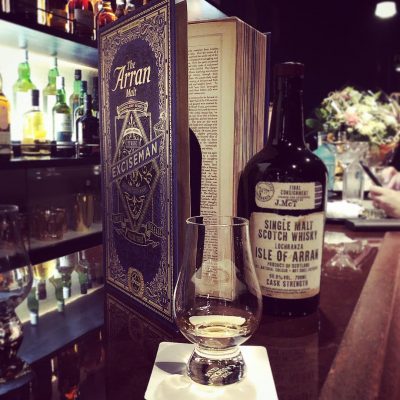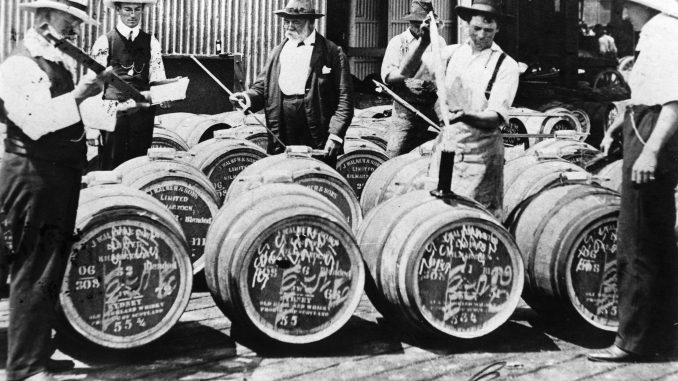
The Exciseman Whisky Bar, Singapore
exciseman (British)
noun plural -men
A government official who collects excises and enforces the laws concerning them
For over two hundred and fifty years, from the early 18th century through to the mid-20th century, excise officers cast a long shadow over the Scotch whisky industry. These were the men charged with ensuring government taxation policies were adhered to and illegal distilleries were destroyed.
The role of ‘policing’ taxation was formalised with the establishment of the The Scottish Excise Board in 1707, as part of the Treaty of Union which created Great Britain. One particular provision of the Treaty was that the same level of duty was to be enforced both north and south of the border. This imposition was very unpopular with the Scots, who saw it as English interference in Scottish matters and thus evading payment of the duty was seen as something of a matter of honour.
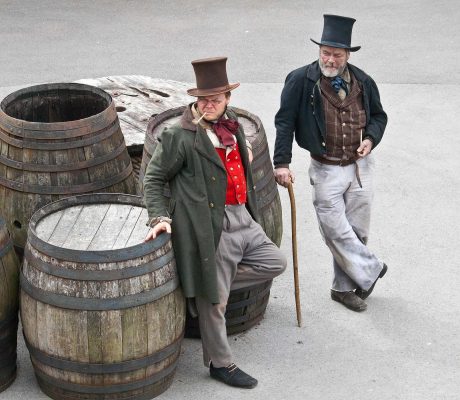
The almost impossible task of enforcing excise legislation was the role of the officers of the Excise Board, commonly known as ‘gaugers’, because their main task was to gauge the amount and value of spirits being produced at a distillery. Their role was an onerous one, as Phillip Morrice observed in ‘The Schweppes Guide to Scotch’ published in 1983: ‘The exciseman’s lot was not a happy one. He was working against a highly-motivated, hostile and sometimes desperate section of the population, whose activities were either supported or connived at by a majority of the rest. He was often working in unfamiliar territory and was obliged to do so by a rulebook, whereas his adversaries had none. Like all tax collectors in history, he had no natural allies, save the government of the day which left him to execute its unpopular policies.’
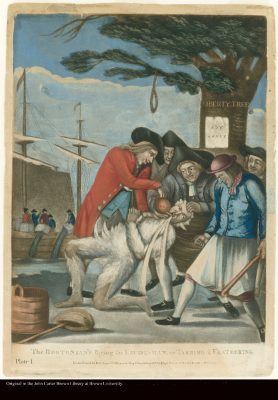
Paying the Exciseman
An infamous British print from 1774 depicted the tarring and feathering of Boston Commissioner of Customs, John Malcolm; tarring and feathering had become a ritual of humiliation and a public warning that stopped just short of serious injury.
Around the time of the whisky rebellion, (1791 – 1794) in the now independent United States of America, tarring and feathering became a popular punishment inflicted on ‘excisemen’ by Pennsylvania farmers who were upset at having to pay a government tax on whiskey distillation. The practice became so widespread that tarring and feathering was, for a time, known by the term ‘paying the exciseman’.
During the presidency of George Washington, the so-called “whiskey tax” was the first tax imposed on a domestic product by the newly formed federal government. It became law in 1791, and was intended to generate revenue for the war debt incurred during the Revolutionary War.
Farmers of the western frontier were accustomed to distilling their surplus grain into whiskey and these farmers resisted the tax. Many of the resisters were war veterans who believed that they were fighting for the very principles of the American Revolution.
Because of these and other violent attacks, the tax went largely uncollected in 1791 and early 1792 and the tax law was repealed by President Jefferson in 1800.
Scotch Drink
Gie him strong drink until he wink,
That’s sinking in despair;
An’ liquor guid to fire his bluid,
That’s prest wi’ grief and care:
There let him bouse, an’ deep carouse,
Wi’ bumpers flowing o’er,
Till he forgets his loves or debts,
An’ minds his griefs no more.
Solomon’s Proverbs, xxxi. 6, 7.
Let other poets raise a fracas
“Bout vines, an’ wines, an’ drucken Bacchus,
An’ crabbit names an’stories wrack us,
An’ grate our lug:
I sing the juice Scotch bear can mak us,
In glass or jug.
O thou, my muse! guid auld Scotch drink!
Whether thro’ wimplin worms thou jink,
Or, richly brown, ream owre the brink,
In glorious faem,
Inspire me, till I lisp an’ wink,
To sing thy name!
Let husky wheat the haughs adorn,
An’ aits set up their awnie horn,
An’ pease and beans, at e’en or morn,
Perfume the plain:
Leeze me on thee, John Barleycorn,
Thou king o’ grain!
On thee aft Scotland chows her cood,
In souple scones, the wale o’food!
Or tumblin in the boiling flood
Wi’ kail an’ beef;
But when thou pours thy strong heart’s blood,
There thou shines chief.
Food fills the wame, an’ keeps us leevin;
Tho’ life’s a gift no worth receivin,
When heavy-dragg’d wi’ pine an’ grievin;
But, oil’d by thee,
The wheels o’ life gae down-hill, scrievin,
Wi’ rattlin glee.
Thou clears the head o’doited Lear;
Thou cheers ahe heart o’ drooping Care;
Thou strings the nerves o’ Labour sair,
At’s weary toil;
Though even brightens dark Despair
Wi’ gloomy smile.
Aft, clad in massy siller weed,
Wi’ gentles thou erects thy head;
Yet, humbly kind in time o’ need,
The poor man’s wine;
His weep drap parritch, or his bread,
Thou kitchens fine.
Thou art the life o’ public haunts;
But thee, what were our fairs and rants?
Ev’n godly meetings o’ the saunts,
By thee inspired,
When gaping they besiege the tents,
Are doubly fir’d.
That merry night we get the corn in,
O sweetly, then, thou reams the horn in!
Or reekin on a New-year mornin
In cog or bicker,
An’ just a wee drap sp’ritual burn in,
An’ gusty sucker!
When Vulcan gies his bellows breath,
An’ ploughmen gather wi’ their graith,
O rare! to see thee fizz an freath
I’ th’ luggit caup!
Then Burnewin comes on like death
At every chap.
Nae mercy then, for airn or steel;
The brawnie, banie, ploughman chiel,
Brings hard owrehip, wi’ sturdy wheel,
The strong forehammer,
Till block an’ studdie ring an reel,
Wi’ dinsome clamour.
When skirling weanies see the light,
Though maks the gossips clatter bright,
How fumblin’ cuiffs their dearies slight;
Wae worth the name!
Nae howdie gets a social night,
Or plack frae them.
When neibors anger at a plea,
An’ just as wud as wud can be,
How easy can the barley brie
Cement the quarrel!
It’s aye the cheapest lawyer’s fee,
To taste the barrel.
Alake! that e’er my muse has reason,
To wyte her countrymen wi’ treason!
But mony daily weet their weason
Wi’ liquors nice,
An’ hardly, in a winter season,
E’er Spier her price.
Wae worth that brandy, burnin trash!
Fell source o’ mony a pain an’ brash!
Twins mony a poor, doylt, drucken hash,
O’ half his days;
An’ sends, beside, auld Scotland’s cash
To her warst faes.
Ye Scots, wha wish auld Scotland well!
Ye chief, to you my tale I tell,
Poor, plackless devils like mysel’!
It sets you ill,
Wi’ bitter, dearthfu’ wines to mell,
Or foreign gill.
May gravels round his blather wrench,
An’ gouts torment him, inch by inch,
What twists his gruntle wi’ a glunch
O’ sour disdain,
Out owre a glass o’ whisky-punch
Wi’ honest men!
O Whisky! soul o’ plays and pranks!
Accept a bardie’s gratfu’ thanks!
When wanting thee, what tuneless cranks
Are my poor verses!
Thou comes-they rattle in their ranks,
At ither’s a-s!
Thee, Ferintosh! O sadly lost!
Scotland lament frae coast to coast!
Now colic grips, an’ barkin hoast
May kill us a’;
For loyal Forbes’ charter’d boast
Is ta’en awa?
Thae curst horse-leeches o’ the’ Excise,
Wha mak the whisky stells their prize!
Haud up thy han’, Deil! ance, twice, thrice!
There, seize the blinkers!
An’ bake them up in brunstane pies
For poor damn’d drinkers.
Fortune! if thou’ll but gie me still
Hale breeks, a scone, an’ whisky gill,
An’ rowth o’ rhyme to rave at will,
Tak a’ the rest,
An’ deal’t about as thy blind skill
Directs thee best.
Robert Burns: Scotch Drink
The second poem in the Kilmarnock Volume, 1785
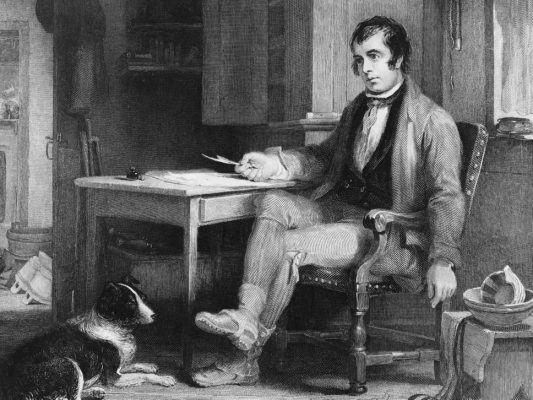
January 25th is Burns’ Day, a day that commemorates the birthday of Robbie Burns, Scotland’s National Poet. The event is celebrated as ‘Burn’s Night’ all over Scotland and throughout the world, with a ‘Burn’s Supper’ of whisky, haggis, neeps and tatties; the haggis usually being marched into the dining hall to the sound of bagpipes, and most of the men wear the traditional kilt.
Born in 1759, in Alloway Scotland, to William and Agnes Brown Burnes, Robert followed in his father’s footsteps and became a tenant farmer. He also became a practicing poet, writing about all manner of daily life, tradition, culture and experience and doing so in such a way that it resonated deeply with his fellow Scotsmen across the nation and then on around the world.
He became not only Scotland’s National Poet but a voice of immense influence and impact across the globe; especially in England, Canada, the United States and even Russia; where he was lauded both before and after the revolution as the people’s poet. In 1956, the Russian government issued a commemorative stamp in his honour and he remains a popular figure in the country even till this day.
When asked for the source of his greatest creative inspiration, singer songwriter Bob Dylan selected Burns’ 1794 song “A Red, Red Rose” as the lyric that had the biggest effect on his life, as was recorded by several London Newspapers in 2009.
As famous as Robert Burns is as a poet and songwriter, a large part of his adventurous life was also spent as a government exciseman, or ‘rascally gager’, as Burns himself would come to call them.
Burns is said to have become disillusioned with farming after the failure of his crop just before his 29th birthday and so, he set out to find another, more stable source of income. A friend, the Earl of Glencairn saw that Burns was enlisted as an Excisemen in September of 1789.
Burns soon grew weary with the burden of this unpopular task writing in his letters, “My fingers are so worn to the bone in holding the noses of his Majesty’s liege subjects to the grindstone of Excise that I am totally unfit for wielding a pen in any generous subject.”
There was also danger in this work as excisemen were subjected to intimidation, bribes, the occasional kidnapping, beatings and some were known to have been murdered. The job was to make surprise visits to traders to check books for accurate accounts and to make sure the correct tax was applied on whisky. Burns was acutely aware he had enemies and was performing a thankless task in a much-hated role.
The deil cam fiddlin’ thro’ the town,
And danc’d awa wi’ th’ Exciseman,
And ilka wife cries, “Auld Mahoun,
I wish you luck o’ the prize, man.”
Chorus-The deil’s awa, the deil’s awa,
The deil’s awa wi’ the Exciseman,
He’s danc’d awa, he’s danc’d awa,
He’s danc’d awa wi’ the Exciseman.
We’ll mak our maut, and we’ll brew our drink,
We’ll laugh, sing, and rejoice, man,
And mony braw thanks to the meikle black deil,
That danc’d awa wi’ th’ Exciseman.
The deil’s awa, &c.
There’s threesome reels, there’s foursome reels,
There’s hornpipes and strathspeys, man,
But the ae best dance ere came to the land
Was-the deil’s awa wi’ the Exciseman.
The deil’s awa, &c.
Robert Burns: The Deil’s Awa Wi’ The Exciseman, 1792
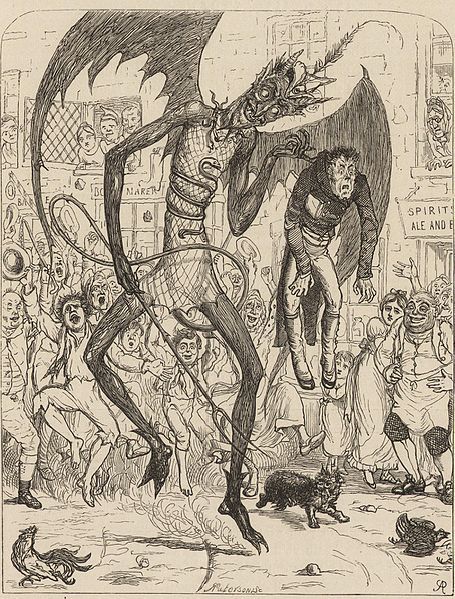
Of course, rascally gagers were not averse to being ‘drammed’ up or bribed by distillers to look the other way and it is worth noting that Robert Burns remained at his station working from Mill Street until his death on 21st July 1796, still a serving officer of the Excise.
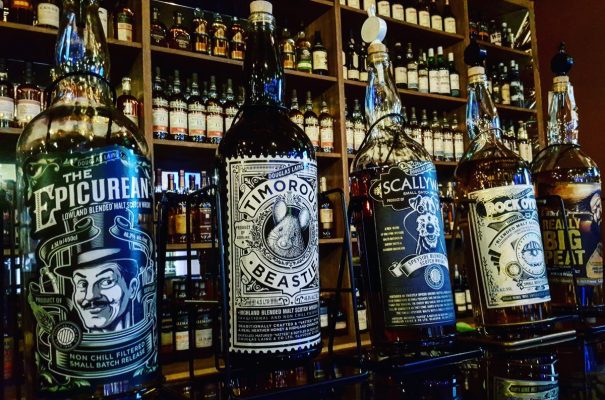
The Singapore Exciseman
With the lights down low and the music set to smooth, the mood in this den of Uisgeophiles is refined and relaxed, the earnest dissection of distillate going on in one corner, unbridled laughter and joy in another.
The décor -patterned tiles, wrought iron, plush faux leather, hammered copper and lithograph posters- has the urbane chic of a Chicago speakeasy crossed with a London club of the Victorian era; right down to its rose-gold swan dispenser on the bar that emits charcoal filtered water.
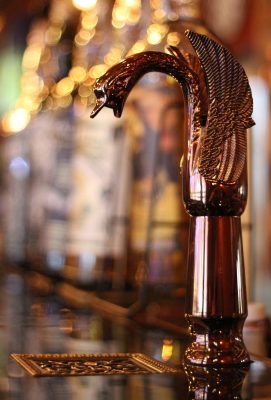
Owned and operated by whisky legend Lewis Mitchell, he is one of Singapore’s great whisky masters, Lewis is an ebullient aficionado, a veritable walking encyclopedia on all things whisky and a damned fine host.
The selection on offer is astounding, from special editions, old favourites and rare gems and don’t worry if whisky isn’t your tipple of preference as the bar is well stocked with all manner of artisanal, small batch and hand-crafted spirits, aperitifs, liqueurs and digestives.
A perfect place for pre-dinner drinks or after show night caps this is a bar with a serious knowledge of whisky to go with is serous sense of style.
